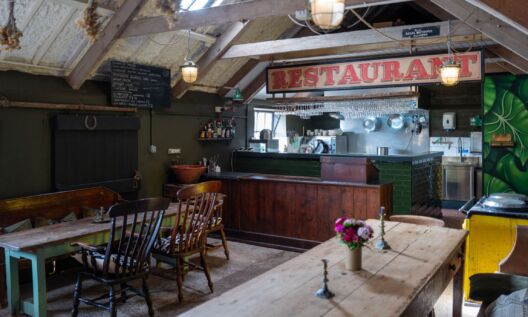Register to get 2 free articles
Reveal the article below by registering for our email newsletter.
Want unlimited access? View Plans
Already have an account? Sign in
Some 47% of consumers have witnessed some form of abuse towards hospitality staff in pubs, restaurants, takeaways and hotels in the past three years, new research from insurer NFU Mutual has found.
The abusive behaviours ranged from belittling, being patronising, cursing, shouting and physical attacks upon employees. The research also found that 87% of consumers expect hospitality staff to have the necessary training to effectively manage a verbally or physically abusive customer.
Despite this, 45% of the customer-facing businesses which were also surveyed said that they were not actively taking any measures to protect their staff. The measures that they said they currently take are to have a policy statement, use CCTV or double up on staff.
The survey found that while consumers are relatively undeterred by a badly handled incident, a well-handled incident can improve a business’s reputation and enhance the likelihood that consumers will return.
Some 40% of consumers said they would be just as likely or even more likely to visit if an incident was handled well as they would feel safe. However, 14% said they would be put off by a poorly handled incident at somewhere they regularly visit and 26% would be put off somewhere they are visiting for the first time.
The NFU Mutual study also found that 80% of consumers would either physically (32%) or verbally (48%) intervene if a member of staff was being attacked by another customer. Men and women are almost equally likely to verbally intervene if a customer is being rude to a member of staff (39% of men and 38% of women), while men are more likely to physically intervene if a staff member was being attacked (47%).
Some 86% of consumers agree with the idea of legislation changes that would provide better protection for hospitality workers, with those in Scotland, east of England, the north east and south west most likely to agree.
Darren Seward, hospitality specialist at NFU Mutual, said: “Many hospitality staff are young people taking their first steps into the working world, often doing so for minimum wage, and these sorts of encounters can crush their enthusiasm to pursue a career in hospitality.
“A well-handled incident – perhaps with the use of a panic button or a security guard – could even help to improve reputation and encourage visits. It’s the responsibility of the management to keep people safe and although insurance can provide cover against legal action, the best option is always preparation.”




















